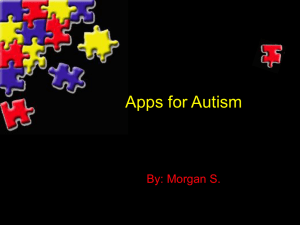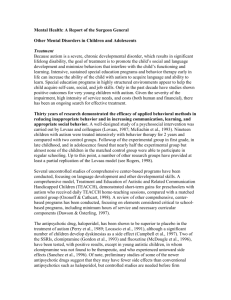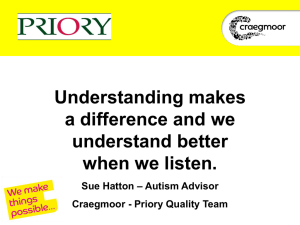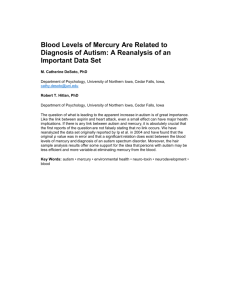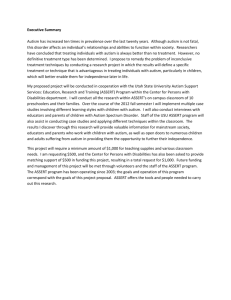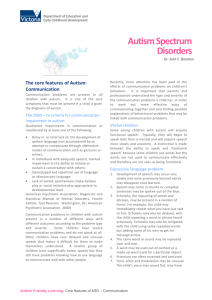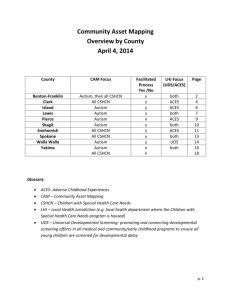Special educators of students with autism understand that
advertisement
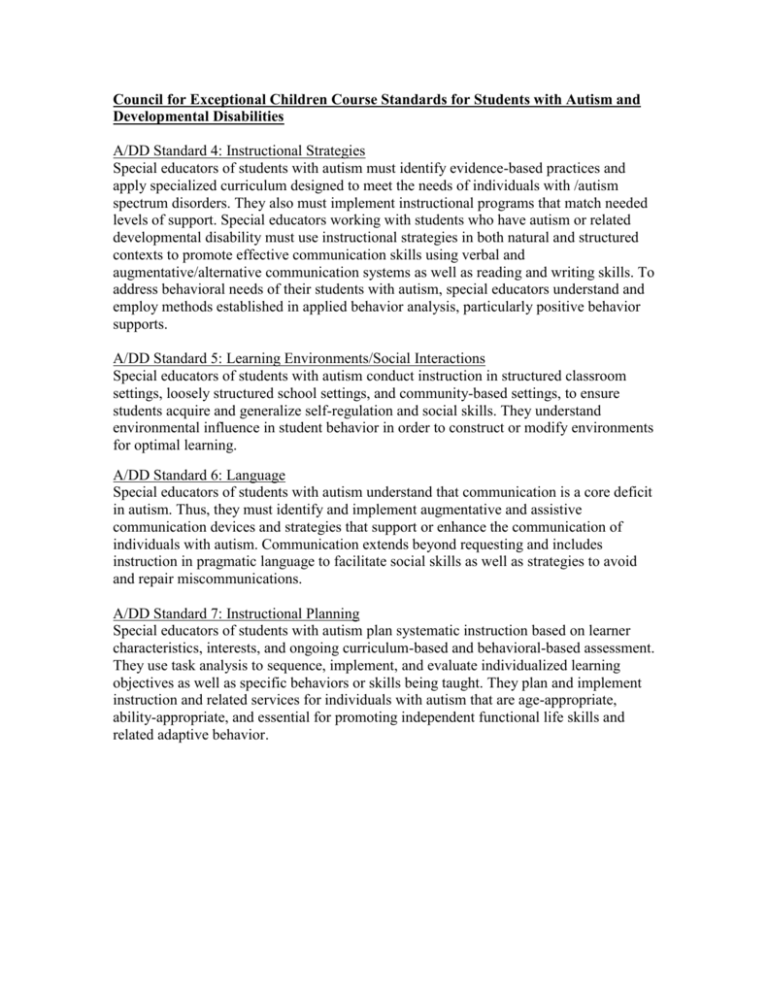
Council for Exceptional Children Course Standards for Students with Autism and Developmental Disabilities A/DD Standard 4: Instructional Strategies Special educators of students with autism must identify evidence-based practices and apply specialized curriculum designed to meet the needs of individuals with /autism spectrum disorders. They also must implement instructional programs that match needed levels of support. Special educators working with students who have autism or related developmental disability must use instructional strategies in both natural and structured contexts to promote effective communication skills using verbal and augmentative/alternative communication systems as well as reading and writing skills. To address behavioral needs of their students with autism, special educators understand and employ methods established in applied behavior analysis, particularly positive behavior supports. A/DD Standard 5: Learning Environments/Social Interactions Special educators of students with autism conduct instruction in structured classroom settings, loosely structured school settings, and community-based settings, to ensure students acquire and generalize self-regulation and social skills. They understand environmental influence in student behavior in order to construct or modify environments for optimal learning. A/DD Standard 6: Language Special educators of students with autism understand that communication is a core deficit in autism. Thus, they must identify and implement augmentative and assistive communication devices and strategies that support or enhance the communication of individuals with autism. Communication extends beyond requesting and includes instruction in pragmatic language to facilitate social skills as well as strategies to avoid and repair miscommunications. A/DD Standard 7: Instructional Planning Special educators of students with autism plan systematic instruction based on learner characteristics, interests, and ongoing curriculum-based and behavioral-based assessment. They use task analysis to sequence, implement, and evaluate individualized learning objectives as well as specific behaviors or skills being taught. They plan and implement instruction and related services for individuals with autism that are age-appropriate, ability-appropriate, and essential for promoting independent functional life skills and related adaptive behavior.


